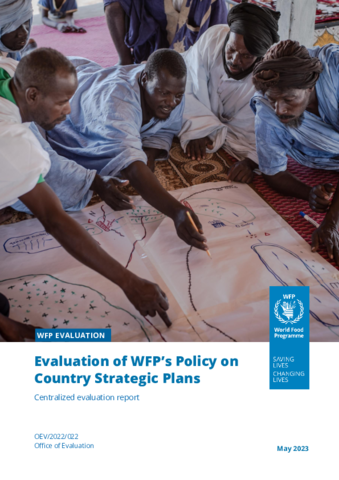
The evaluation focused on three key dimensions of analysis around which the expected results of the policy can be articulated, namely: i) Strategic repositioning; ii) Programme quality and results and iii) Management, governance and accountability. In doing so, it also tried to capture unintended outcomes, positive and negative.
The evaluation notes that:
- the Country Strategic Plans policy implied a far-reaching scale of change. The period covered saw WFP making significant progress in adjusting its strategic outlook, relationship to other actors and internal systems, all while keeping pace with dramatically growing humanitarian needs. Nevertheless, the changes that the policy set in motion will take more time to fully mature, and key adjustments are needed to ensure that the policy’s ambitions are met.
- Overall, greatest progress is being made in alignment and harmonization with national priorities and the UN System; in positioning WFP at the humanitarian–development nexus; and in selected dimensions of flexibility and adaptation. Progress in reducing transaction costs and securing more predictable and flexible funding has been much more elusive, and challenges remain to ensure adequate staffing and for efficient and effective results-based management.


